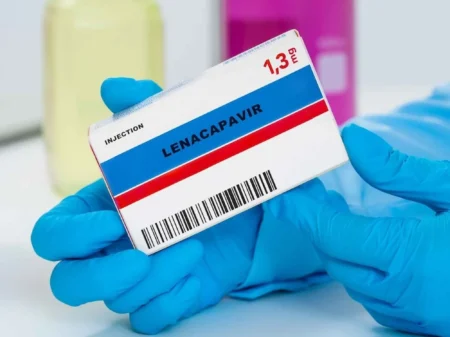- Graphite mining firm Pula Group sues South African billionaire Patrice Motsepe for $195M.
- Motsepe’s ARM mining faces breach of non-complete contract by investing in Australian firm Evolution Energy Minerals near Pula’s graphite project.
- ARM denies all claims, maintaining that they ‘considered’ but did not breach contract.
South African billionaire Patrice Motsepe is facing a $195 million lawsuit in Tanzania following allegations of a breach of contract by his mining companies in the East African country. The high profile case is being heard in Tanzania’s Commercial Court and is one of the biggest suits before the corridors of justice in recent years.
Patrice Motsepe owns a number of mining heavyweights including African Rainbow Minerals (ARM), African Rainbow Capital and ARCH Emerging Markets. He also has shares in Tanzanian mining company Pula Group.
In the roiling legal showdown, Pula Group is accusing billionaire Motsepe of breaching a 2021 non-compete contract by investing in their rival, a Australian company Evolution Energy Minerals. The latter operates in the vicinities of Pula’s graphite project in Ruangwa District, Tanzania. Pula insists that this breach of agreement saw them suffer significant business losses.
Billionaire South African Patrice Motsepe denies violating Tanzania law
While Motsepe’s ARM denies the allegations, it does admit that it did in fact consider investing in Evolution Energy Minerals. However, in court papers, Motsepe’s firm maintains that it “ultimately declined investment in Pula’s project” and that it “notified the company accordingly.”
ARM explains that it did not breach contract and that it complied with the set confidentiality obligations. It is also alleged that ARM is disputing Tanzania’s jurisdiction in the matter, a scenario that has seen the accused miss some court appearances.
Disgruntled Pula’s Chairman, Charles Stith argues that this case exposes what he describes as “unfair practices disadvantaging local firms.”
Stith, who is a former US Ambassador to Tanzania says the high-profile case brings to light “the competitive tensions in Tanzania’s mining sector,” where according to him, “foreign companies often dominate exploration.”
The former diplomat believes that the lawsuit will serve to set precedence for protecting Tanzanian companies’ rights against larger, foreign-backed competitors. According to the Pula Chairman, majority of exploration in Tanzania is done by Australian and Canadian companies, and the former US Ambassodor to Tanzania insists that these multinationals practice “unfair and predatory tendencies.”
“Companies like ARM perpetuate the disparity in the mining sector much to the detriment of Tanzanians,” he alleged. “A similar dynamic existed across the continent of Africa, and the case is expected to set a legal precedent in protecting the rights of local mining and exploration companies competing against international counterparts in Tanzania,” he told press.
Stith also says the law suit is based on; “on a third-party valuation of what Pula stands to lose as a result of the competitive disadvantage resulting from the Motsepe associated companies’ violation of a confidentiality and noncompete agreement.”
According to Stith, they had a two-year non-compete contract with ARM, but even with the contract in place, ARM still “talked to and did the deal with the Australian company within that period.”
Pula also alleges that he has been trying to get the case off the ground for a while, but the Motsepe group of companies, rebutted this allegation claiming they weren’t properly served and that Tanzania doesn’t have jurisdiction.
State-owned Pula Group suing Motsepe’s ARM
Now the Pula Group is applying for a default judgment against Motsepe’s ARM and ARCH Emerging Markets that failed to appear before court.
“I find it strange that we’re at the point where the issues in this suit are soon to be decided by the courts. While Patrice Motsepe is an individual and ARCH is a privately held company, both ARM and ARC are publicly traded companies… both boards have a fiduciary responsibility in this matter, it is interesting that after being informed about this action that they didn’t charge executives to, at least, try to resolve this suit before this point,” the former US Ambassador to Tanzania concluded.
In their defense, Motsepe’s ARM stated; “ARM was considering investing in minerals that it had not mined in the past when the Pula graphite project was presented to it for its consideration.”
The ARM spokesperson added that; “ARM concluded a confidentiality agreement with Pula and subsequently decided not to invest in the project, and communicated the decision to Pula.”
Altogether, ARM has come out strongly in defense of its investment in Evolution Energy Minerals or its lack thereof. The ARM spokesperson insists that the company had in fact concluded their Confidentiality Agreement with the Pula Group and that all its actions were communicated to Pula.
The spokesperson was adamant; “Pula issued summonses against ARM, ARC, ARCH, and Dr. Patrice Motsepe, alleging breach of the Confidentiality Agreement. ARM, ARC, ARCH, and Dr. Patrice Motsepe deny any breach of the Confidential Agreement and also deny that there is any merit to the allegations and claims brought by Pula.”
“The business conduct of ARM, ARC, ARCH and Dr. Patrice Motsepe are based on a commitment and adherence to principles of integrity, ethics, governance, and compliance with agreements that they have concluded,” he reassured stakeholders.
The spokesperson added; “The matter is currently before the High Court of the United Republic of Tanzania, Commercial Division. As such ARM is not able to comment further.”
Now, all parties are required to appear before Judge J. Gonzi of the Commercial Court of Tanzania to receive orders for the Pre-trial Conference and directions regarding Pula’s default application. The case is based on a third-party valuation of what Pula stands to lose as a result of the competitive disadvantage that as alleged, is the result of the Motsepe companies’ violation of a confidentiality and non-compete agreement.
Overall, the case is expected to set a legal precedent and result in more protection for the rights of local mining and exploration companies that compete with larger, more financed international counterparts.
Read also: East African coffee brews opportunity amid Brazil, Vietnam dips
Pula Group Ruangwa graphite project
In a June interview with S&P Global Commodity Insights, Stith, Chairman of the exploration company Pula Group said the company had secured financing and were on trajectory to start production at its Ruangwa graphite project in Tanzania within 9-12 months.
Stith said the project already had a NI 43-101-compliant resource estimation of 140 million metric tonnes and a valuation of $160-220 million and that the necessary studies to transition to a mining license already started.
According to Stith, the Ruangwa’s ore body is shallow and readily accessible, and they would conduct a simple open pit mining operation using traditional flotation processing to yield 90 per cent to 95 per cent purity. “All of which means with the appropriate level financing, we could be in production in 9-12 months,” Stith told S&P Global.
He said they were in talks with investors and had planned visits in the fourth quarter to Singapore, Japan and Hong Kong, as well as to UAE and Saudi Arabia to meet with potential investors.
Stith was confident that the US, EU and UK are all part of the Minerals Security Partnership and have an interest in securing supply chains of critical minerals, which puts them on Pula’s list for possible offtake agreements. How much these plans have been affected by the alleged breach of contract remains to be seen as the aggrieved parties head to court.











